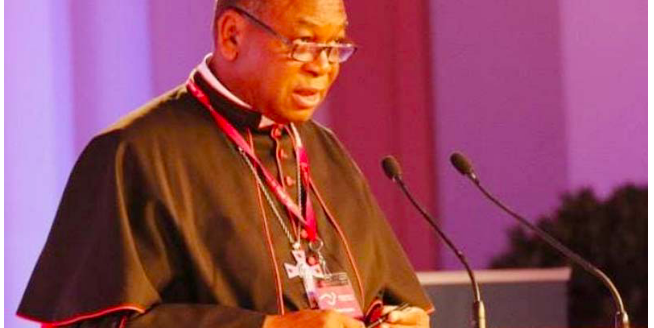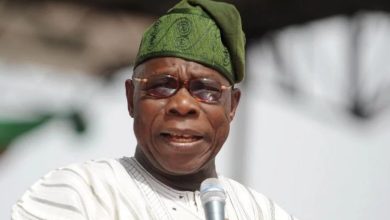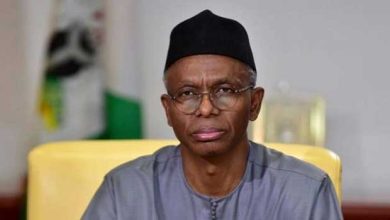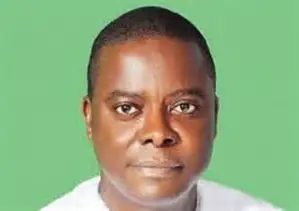Onaiyekan urges Tinubu to equip existing security personnel

Former Archbishop of the Abuja Catholic Diocese, Cardinal John Onaiyekan, has called on President Bola Tinubu to prioritise properly equipping Nigeria’s current security personnel rather than rushing to recruit an additional 20,000 police officers.
The cleric issued the advice on Thursday at the 9th International Conference on Love and Tolerance in Abuja, stressing that the country cannot afford further hesitation in confronting its worsening security challenges.
Speaking passionately on the need for unity and urgency, Cardinal Onaiyekan said the nation’s religious communities must work together to defeat violent groups threatening lives across Nigeria.
“Now in Nigeria, we must build bridges so that Christians and Muslims can jointly confront our common enemy those killing innocent people.
“If we join hands, we can deal with them. We should be able to deal with them, ” he said.
The Cardinal questioned the wisdom behind the Federal Government’s plan to hire thousands of new police officers when existing personnel, he argued, remain poorly equipped.
“With the security forces we already have, we should be capable of addressing this crisis.
“I’m not convinced we need 20,000 more policemen. Arm the ones we have, treat them well, and they will perform, ” he said.
He noted that recruiting and training thousands of new officers would take considerable time — time Nigeria does not have.
“To deploy 20,000 new police officers, how long will it take? One year? Meanwhile, a country can be destroyed in one month.
“Let’s adopt strategies that address the emergency now. Equip the trained policemen we already have — many of whom have been misused as domestic aides.
”Now that they’ve been withdrawn from such duties, let them do real policing, ” he said.
Onaiyekan also urged strong political will to flush out terrorists from forests across the country. While expressing cautious optimism about the President’s recent statements on security, he noted that Nigerians have heard similar assurances for years.
“What are the police for? That is their job. It’s not even the army’s job,” he added.
The conference also featured reflections on global and local peacebuilding.
Cardinal Onaiyekan drew attention to the contrast between global religious cooperation including the landmark “Abu Dhabi document” signed by Pope Francis and the Grand Imam of Al-Azhar and what he described as increasing polarization within Nigeria.
Former Kaduna Central Senator and human rights activist Shehu Sani addressed the deep-rooted causes of intolerance and conflict.
He argued that differences in wealth, power, race, and religion often fuel competition, dominance, and resistance.
“Human differences are natural and inevitable.
“Peace and tolerance begin with recognizing and accepting this diversity, ” he said.
Sani expressed worry over shrinking democratic freedoms, particularly freedom of speech, warning that arrests and intense monitoring of social media discourage open dialogue.
He insisted that love, understanding, and respect for opposing views are essential for building a peaceful society.
Emrah Ilgen, President of the UFUK Dialogue Foundation and host of the conference, said the gathering was conceived to help heal growing divides in an increasingly polarized world.
He explained that the theme, “Bridging Divides: Building Trust in a Polarised World,” was chosen to address tensions fueled by misinformation, fear, and religious and ethnic divisions.
“For more than a decade, UFUK Dialogue has worked to build bridges between communities.
“Humanity is strongest when it chooses dialogue over suspicion, compassion over conflict, and understanding over prejudice, ” he said.
In his welcome remarks, the Director General of the Institute for Peace and Conflict Resolution, Dr. Joseph Ochogwu, represented by Dr. Emmanuel Mamman — warned that Nigeria faces deepening mistrust, widening identity divides, and rising misinformation.
He emphasised the need to rebuild national trust through fairness, dialogue, and the inclusion of women and youths.
“Polarisation is not destiny. “Mistrust, though deep, remains reversible, he said.
Ochogwu added that traditional and religious institutions continue to play a vital role in sustaining social harmony, and collaboration with groups like UFUK Dialogue is crucial in restoring national cohesion.



